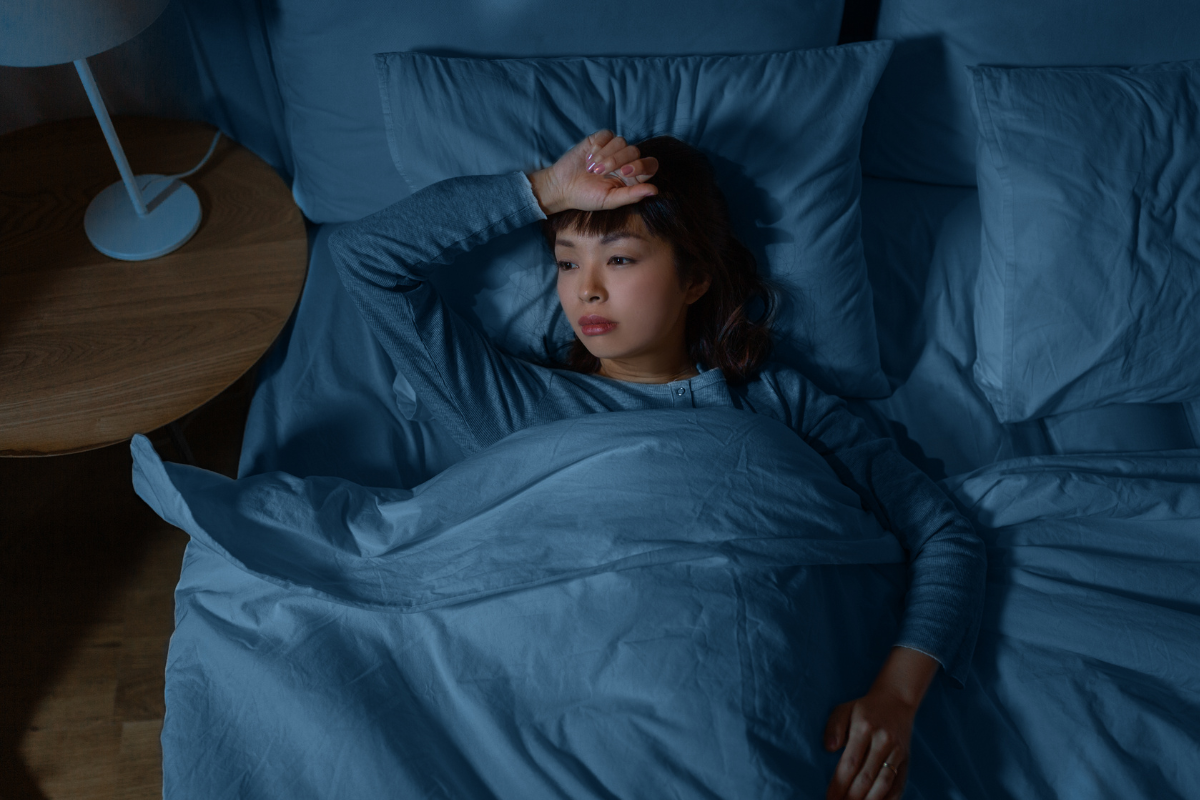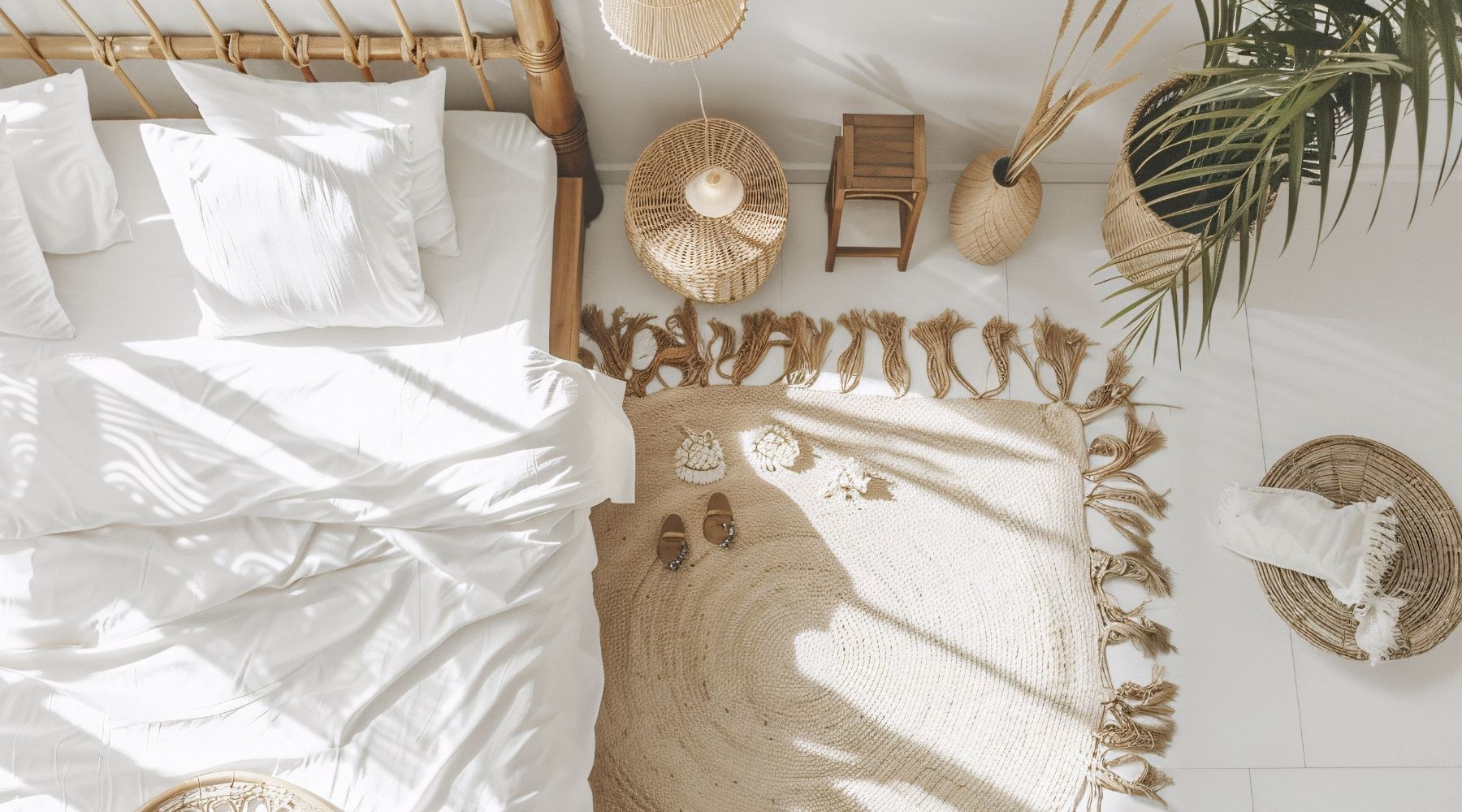If you suffer from hayfever, you might have noticed that your symptoms tend to get worse at night. Sneezing, a runny nose, itchy eyes, and congestion can hit hardest just when you are trying to fall asleep or stay asleep. But why is hayfever worse at night, and what can you do about it?
Let’s dive into the real reasons your allergies flare up in the evening and how to create a sleep sanctuary that supports better breathing and deeper rest.
Why Hayfever Gets Worse at Night
There are a few biological, environmental, and behavioral reasons why nighttime hayfever symptoms intensify.
Pollen settles indoors in the evening
During the day, pollen is airborne and dispersed. But as the temperature drops in the evening, pollen begins to settle. It lands on surfaces like your windowsills, floors, clothing, and yes, even your bedding. This makes it easier for you to come into contact with allergens just as you are winding down.
Closed windows trap allergens inside
You might think closing your windows at night helps block out pollen. And while it does prevent more from coming in, it also traps whatever is already inside - including pet dander, dust mites, and pollen you brought in from outside.
Your histamine levels naturally rise at night
Our bodies follow a circadian rhythm. Part of this rhythm includes the natural release of histamines - the compounds that cause allergic reactions. Some research suggests that histamine levels tend to spike at night, making symptoms like congestion and sneezing feel even more intense when you're trying to sleep.
Your sleeping position can worsen symptoms
Lying down can cause mucus to pool, making congestion worse. If you are already sensitive to allergens, this can quickly lead to a blocked nose, post-nasal drip, or wheezing.
Your bedding might be working against you
Let’s talk about your bedding. It might feel cozy, but many conventional bedding materials can actually make your allergies worse. From dust mites to pollen particles, your bedding can become a hidden source of irritation - unless it is designed to be hypoallergenic.
Tips to Reduce Nighttime Hayfever Symptoms
The good news? You can take small but powerful steps to improve your sleep environment and wake up feeling refreshed instead of congested.
Shower and change clothes before bed
Pollen clings to your skin, hair, and clothing. Always shower in the evening and change into clean sleepwear to reduce the amount of pollen you carry into bed.
Keep bedroom windows shut
Even if the air feels stuffy, avoid opening your windows at night during high-pollen seasons. Use a fan or air purifier instead to circulate clean air.
Invest in an air purifier with a HEPA filter
HEPA filters can capture tiny pollen particles, dust mites, and pet dander - keeping the air in your bedroom clean and breathable.
Elevate your head while sleeping
Use an extra pillow or a supportive sleeping position to prevent mucus from pooling and reduce nasal congestion.
Wash bedding frequently
Wash all bedding at least once a week in hot water to kill dust mites and remove allergens. Avoid fabric softeners and fragrances that can also trigger irritation.
Choose Hypoallergenic Bedding That Actually Helps
One of the most effective ways to support allergy-friendly sleep is to switch to hypoallergenic bedding. Here's how your sheets and pillowcases make a difference:
Bedding can either trap allergens or repel them
Traditional bedding materials like polyester blends or conventional cotton can hold onto allergens. On the other hand, hypoallergenic materials like TENCEL™ Lyocell (derived from eucalyptus) are naturally resistant to allergens and dust mites. They are also breathable, moisture-wicking, and gentle on sensitive skin.
Our eucalyptus bedding is designed for allergy relief
At Ethical Bedding, our eucalyptus bedding is more than just luxuriously soft. It's breathable, antibacterial, and hypoallergenic, making it ideal for anyone struggling with nighttime allergies. Because it resists moisture and bacterial growth, allergens have a harder time taking hold. And because it feels cool and smooth against your skin, it supports comfortable, undisturbed rest.
The best bedding for hayfever and allergies is simple, clean, and plant-based
That’s why our bedding collection is designed to meet the needs of allergy sufferers - no harsh chemicals, no animal-derived materials, and no compromise on comfort.
Your Bedroom Should Be a Refuge - Not a Trigger
Hayfever doesn’t have to ruin your sleep. By understanding why symptoms get worse at night and how to reduce allergen exposure, you can create a bedroom environment that helps you breathe easier and sleep deeper. Switching to high-quality, hypoallergenic bedding is a powerful first step and your future self will thank you for it.
Ready to upgrade your sleep?
Explore our hypoallergenic bedding collection and discover the power of eucalyptus for a cleaner, calmer night’s rest.








Share:
How to Cool Down a Room for Better Sleep (And Why Your Bedding Matters More Than You Think)
What Is Temperature-Regulating Bedding and why is it a Game-Changer?